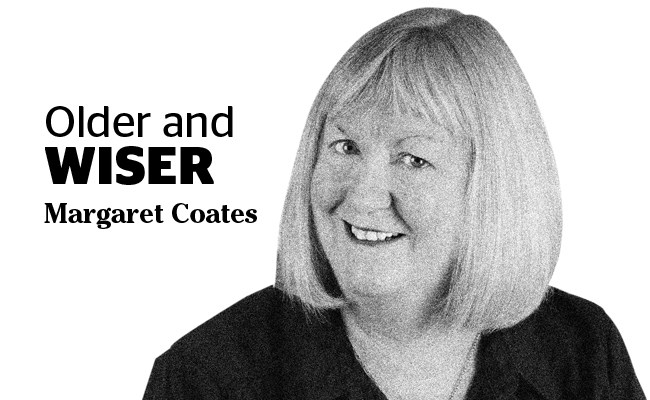On a CBC podcast called The Age of Anxiety on the Out in the Open show the other day, a 39-soon-to-be-40-year-old woman talked about her fear of aging.
She said, “It doesn’t help that our culture tells me in some subtle and not-so-subtle ways that the older I get, the more irrelevant I am, especially as a woman.”
This led me to think about ageism and the many myths that abound about seniors.
There are myths about aging and declining intellect, declining sexuality, an older person’s inability to learn new things, their lessening ability to cope with change, the growing prevalence of Alzheimer’s disease in seniors, older workers’ declining capabilities, changing personalities (so-called grouchy old people), and so on.
In Facts on Aging Quiz (2015) by Breytspraak, L. & Badura, L., the authors provide evidence about two misconceptions of aging: lessening of intelligence and the ability to learn new things. Their evidence shows that intellectual performance for healthy older adults holds up well into old age.
The Facts on Aging Quiz says about aging, “The good news is that research data now indicate that this is a life stage programmed for plasticity and the development of unique capacities and that intellectual decline can be modified by life-style interventions, such as physical activity, a healthy diet, mental stimulation, and social interaction.”
As for learning new things, older adults, if they regularly practise their learning skills, maintain learning efficiency over their life span.
The authors also question the prevalence of Alzheimer’s disease in seniors. In their report, they say that according to the 2014 Alzheimer’s Disease Facts and Figures Report published by the Alzheimer’s Association, one in nine people 65 and older (11 per cent) have the disease.
About one-third of people age 85 and older (32 per cent) have Alzheimer’s disease. Of those with the disease, the vast majority (82 per cent) are age 75 or older.
In the CBC podcast, author and journalist Anne Karp said, “You really need to make a distinction between resisting aging and resisting ageism. Resisting ageism is a really good thing to do . . . resisting aging is an absolutely futile task.”
Ageism is defined by Wikipedia as the stereotyping and discriminating against individuals on the basis of their age. And according to Thomas G. Wellner in a Huffington Post article (July 13, 2016), “ageism is by far the most tolerated form of social prejudice in Canada, way ahead of racism and sexism.”
As we age, our bodies and minds do undergo changes.
We experience some memory loss and losses of strength, perhaps we have trouble sleeping, we are at risk for more chronic conditions, and we lose some of our abilities with our five senses.
The Fact in Aging Quiz noted that “Many of these can be compensated for through increasingly sophisticated assistive devices (hearing aids, glasses, etc.) and through modifications of the older person’s environment.”
But why should these natural aging processes affect how we treat seniors or why the myths abound?
It seems that society has created a situation where seniors are often treated as irrelevant, infirm, feeble, losing their abilities to make judgements. They can also be infantilized (we know what’s best for our aging senior).
Wellner suggested people check their assumptions: “Ask an older adult if they want you to do something for them, rather than jumping in. Whether it’s doing an errand or making a financial decision, never assume you know what they want.”
Karpf said we need to recognize that all stages of life are about both gains and losses, in both our younger and older years.
“One loses certain things and one gains other things. And that is true for the whole of life.”
Words to live by.
Margaret Coates is the co-ordinator of Lionsview Seniors’ Planning Society. She has lived on the North Shore for 47 years and workded with seniors for 20 years. [email protected]



